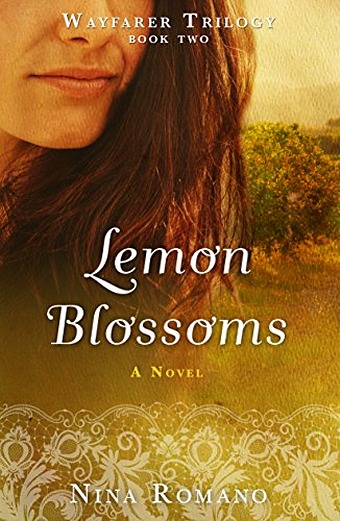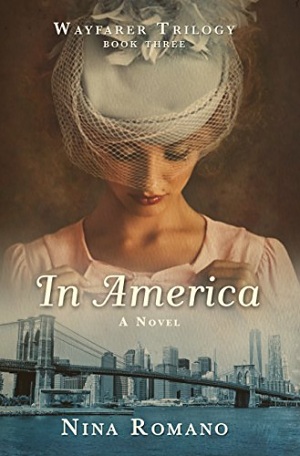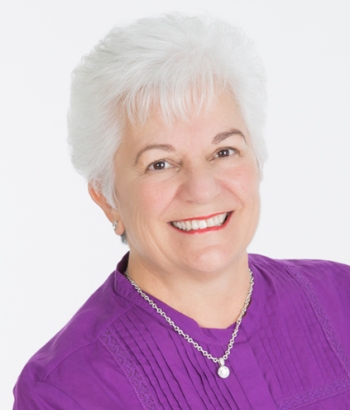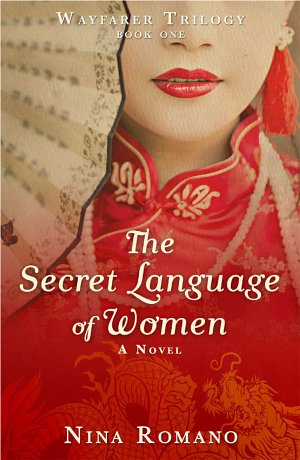Nina Romano Interview
Nina Romano earned a B.S. from Ithaca College, an M.A. from Adelphi University and a B.A. and an M.F.A. in Creative Writing from FIU. She’s a world traveler and lover of history. She lived in Rome, Italy, for twenty years, and is fluent in Italian and Spanish. She has authored a short story collection, The Other Side of the Gates, and has published five poetry collections and two poetry chapbooks with independent publishers. She co-authored Writing in a Changing World. Romano has been nominated twice for the Pushcart Prize in Poetry.
Website: www.ninaromano.com
Author page on Amazon
Nina on Facebook
Nina on Twitter
Nina on Goodreads
———————————————————-
What motivates you to write and how did you get started?
No fair—that’s two questions! Let’s take the first one.
A. What motivates you to write?
An image, a character, an idea or a story comes to mind and I want to learn more about it. I want to follow that character around and watch what he/she does. John Fowles, a wonderful writer, had an image in mind when he wrote The French Lieutenant’s Woman.
I write imagistic poetry and I think that carried over into my prose. And growing up in an Italian household was a godsend because of all the stories I heard from my grandparents and aunts and uncles. I kept my mouth shut and my ears open. Those tales were instructions for life that this future author thrived on and used in all of her fiction.
I fell in love with China as a little girl because of my Grandpa’s travels there. He always talked about the Boxer Rebellion and how exotic China was. I always knew that someday I’d visit there and write about it. And the stories about Italy! I knew I’d go there someday, and I did. I visited Italy twice before I was married, and then I was fortunate enough to settle in Rome for twenty years.
B. How did you get started writing?
I used to leave love notes to my parents on their night-tables, or in the books they were reading. I think I was trying to write lyrically, poetically way before I ever knew I’d become a poet. I was always in love with words and language. I consider myself a lucky gal to have learned Spanish and Italian—both gorgeous languages. How I love to fling around foreign words in my poetry and fiction! Not just Italian or Spanish either: French, Jicarilla Apache, Chinese, you name it—I always think it enhances the writing. But it’s tricky, because you have to let readers know or comprehend what those words mean—and do it subtly.
What’s most rewarding about writing?
That’s such a little question, but it’s packed with a whopping, great punch. Well, Sandy, do you want the long algebraic answer or the short geometric one?
Okay, I’m going to leave it at this—reams of pages with thousands of words equals a novel, and everything contained therein is a revelation of some kind whether it’s about people, places, or subjects you never dreamed you’d approach like Astronomy! And short stories and poems, for me, are condensed narratives that illuminate and instruct by opening up the brain in so many universal ways, it’s mind-boggling. But of course, as you write, you must always carry a pick and shovel with you to dig for the essence of life’s meanings, but they’re there for the grasping. I think you know this to be inherently true because you, too, are a writer.
What’s your favorite genre and why?
Another loaded question! What’s with you, Sandy? Do you stay up all night dreaming of trick questions for these interviews?
What is my favorite genre to write or to read or both?
I love delving into the past and seek to understand it; what it was like to live in other countries and time periods. I love history and geography and research—so I write historical.
But I can read crime, mysteries, thrillers, suspense, and literary fiction. The books I can’t read like fantasy, sci-fi, vampires, horror, chick lit, and essays—I listen to on audiobooks.
Gotcha on that one!
Where do your characters come from?
From my head, mostly, and many characters come from the writing itself. Although some characters are composites of people I actually know. I use some of their traits, mannerisms, attributes, flaws, or whatever. If the character is based on a real person, I tend to change their sex, color of hair and eyes, and other things so they aren’t recognizable.
This is honest truth—my Mom once said to me, “Why don’t you ever write about me?” I answered, “Mom, it’s all about you—you just don’t recognize yourself.”
Who is an author who inspires you and why?
I’m changing your question to: Who are the authors who inspire you? I’m leaving off the “why” because it seems so obvious, that it’s redundant.

Leo Tolstoy, Thomas Hardy, John Donne, Fyodor Dostoyevsky , Anton Chekhov, Rudyard Kippling, Samuel Taylor Coleridge, Herman Melville, Walt Whitman, (amazing I never read him until Grad school!), Jane Austen, John Steinbeck (although he’s not a favorite in the literary cannon—I read every one of his novels, except Viva Zapata, and I believe that was a screenplay!) Elizabeth Bishop, Isabel Allende, Cormac McCarthy, Larry McMurtry, Charles Frazier, E. Annie Proulx, Alice Munro, Diane Ackerman, Yeuda Amichai, Philip Larkin, John Ashbery, C. K. Williams, Marie Howe, Mary Oliver, Campbell Mc Grath, Michael Hettich, John Dufresne, Jim Daniels, Denise Duhamel, Sarah Cabot Gunning, and the list goes on and on!
There was a time when I’d only read authors who had won prizes: Booker Prize, National Book Award, National Critics Circle Award, Pulitzer Prize. But I stopped doing that in Grad School, realizing that there are so many great writers who are completely overlooked.
What do you look for in other people’s books?
Great characters. Good story. Beautiful language. Lasting images.
What are you writing now?
I just finished writing a fourth novel, which has nothing to do with my Wayfarer Trilogy, but it might turn into a duology. It’s a historical Western Romance, entitled: The Girl Who Loved Cayo Bradley. It takes place between New Mexico and St. Louis, Missouri in the late 1800’s.
While I’m shopping around the novel, I decided to revamp one of my short stories, which I actually wrote a screenplay for and found that I hadn’t included it in my short story collection, The Other Side of the Gates—what an oversight! And although I haven’t written poetry for a long time while working on my trilogy in fiction, I’m going to try to write a few Christmas poems. And I’m also toying with the idea of writing a novel based on my Aunt’s life in Sicily during WWII.
What kind of book would you like to be known for?
Historical Romance. No doubt. At the moment, I have a great fondness for the three books in my Wayfarer Trilogy.
The Secret Language of Women—is the first book and it’s set in China during the Boxer Rebellion. I did a great deal of research for it and I visited China several times.
The second novel, Lemon Blossoms, is set in Sicily—my grandparents on both maternal and paternal sides were Sicilian. I lived in Italy for twenty years and visited the island many times. My 103 year-old auntie, Zia Lina, still lives in Palermo. I spoke to her yesterday—she’s sharp and lucid and still lives alone. She’s feisty, determined and courageous, and has had an incredible life.
The third book, In America, is a favorite because it’s set in Brooklyn, New York where I grew up, and because it took me only a year to write—not eight or nine like the other two. I was under contract for it with Turner Publishing. Before that, I seriously doubted there ever was a genius named Isaac Asimov, who said: “People who think they know everything are a great annoyance to those of us who do,” and wrote 27 books in a year!
What has writing taught you about yourself?
There are many sides to a story, depending on the perspective. I think I write to better understand the world I live in and to view others without judgement.
How has your life experience influenced your writing?

I’m blessed being married for fifty years to a world traveler! As I said earlier, we lived in Italy, so we got to see much of Europe and we had our own boats. We traveled all around Italy, to Greece, Yugoslavia, when it was united, the coast of France, and many islands: the Pontine, Corsica, Elbe, Sardinia, Sicily, the Aeolian, Capri, Ischia—many I’ve written about in my poetry! We traveled throughout Europe, too. I know how very fortunate we are.
What encouraging advice can you offer new writers?
READ!!!! Read, read, read, and travel as much as possible—because traveling is, as I always say, an education in itself—like getting a Master’s of perhaps even a Doctorate. You get to see how other people live, learn other languages, cultures, mores, religions, societal customs, food, wine, beer, and vodka – Poland was great for that! If you visit museums, well, that’s another degree in Anthropology, Archaeology, Natural History, etc.
EXPOSURE to all things cultural. You learn to be a writer with all the things you’re exposed to: Art, Opera, Ballet, Theater, Film, Sports, Education, Teaching (you always learn from your students and I love teaching writing workshops). My husband and I enjoy Art Galleries, Art Shows and Exhibitions. I think Ekphrastic Poetry is one of my favorites and it’s all about ART.
Thanks so much , Sandy, for this delightful opportunity of speaking with you about my bliss—writing!
——————————————————–
The Secret Language of Women (Wayfarer Trilogy)


Fantastic interview—Nina is an inspiration! Always kind and willing to lend a helping hand to new writers.
Absolutely delightful interview! Wonderful questions and answers!